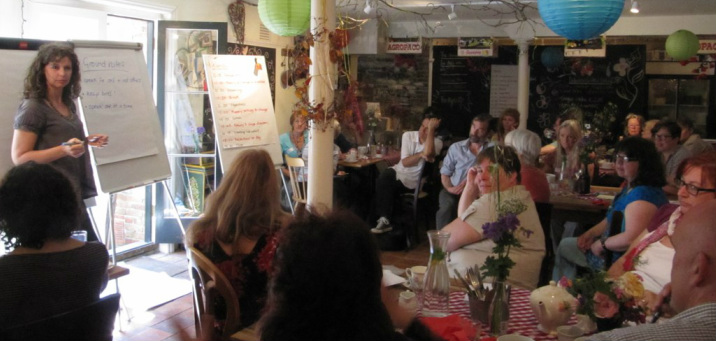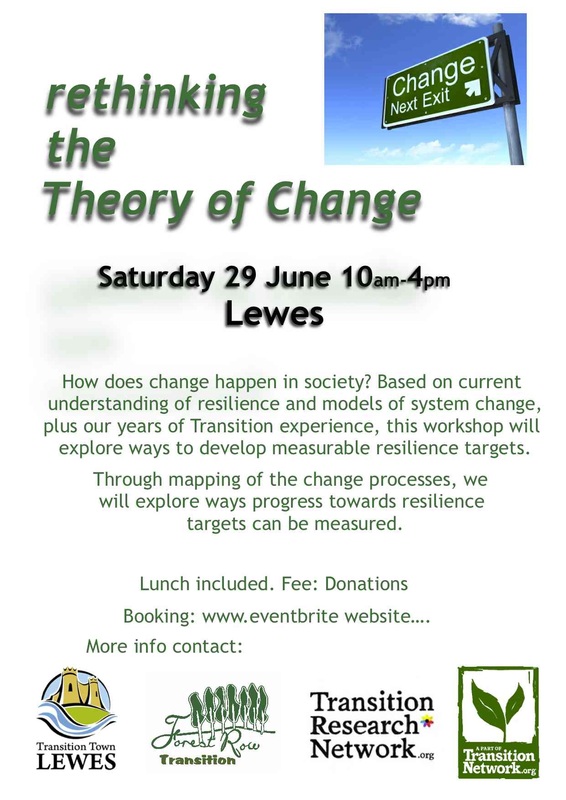Theory of Change Tour, Summer 2013
As part of the follow-up to the project 'Connection, Participation and Empowerment in Community-based Research', the Arts and Humanities Research Council funded three action learning workshops which took place in late June and early July 2013. Workshop participants examined the theories of change employed by Transition activists and how these affect approaches to planning, implementation, monitoring and evaluation, both of individual projects and strategically at the level of local initiatives, regional networks of initiatives, and the movement as a whole.
Transition Town Lewes hosted the first event on June 30th at the Buttercap Café, packed to capacity with local Transitioners and visitors from Initiatives across the South East, including Chichester, Forest Row, Worthing, Brighton and a new initiative in Eastbourne. Ably facilitated by Beverley Duckworth, groups explored links between the practical objectives of specific projects and their broader visions for long-term change, and reflected on appropriate ways for groups to evaluate their progress. The following weekend, once again in glorious sunshine, Transition Town Brixton hosted a similar event at Brixton Community Base, with groups from across London in attendance. A report on these events is available here, and Mike Grenville of Transition Forest Row has posted photos of the Lewes event on the Transition South East website.
In between, at Hamilton House in Bristol on July 3rd, Transition Network hosted a Learning Day on community resilience and theories of change, attended by staff board members, local Transition activists, researchers involved in projects on community resilience, and a few invited guests from partner organisations. Participants reflected on some of the models and theories of change that have influenced Transition over the years and how our understanding of change has developed as a result of active involvement in Transition, the implications for Transition as a movement and the practical consequences in terms of documenting and communicating the achievements and limitations of Transition to date.
Findings from all three events will feed into the broader programme on Monitoring and Evaluation for Transition.
In between, at Hamilton House in Bristol on July 3rd, Transition Network hosted a Learning Day on community resilience and theories of change, attended by staff board members, local Transition activists, researchers involved in projects on community resilience, and a few invited guests from partner organisations. Participants reflected on some of the models and theories of change that have influenced Transition over the years and how our understanding of change has developed as a result of active involvement in Transition, the implications for Transition as a movement and the practical consequences in terms of documenting and communicating the achievements and limitations of Transition to date.
Findings from all three events will feed into the broader programme on Monitoring and Evaluation for Transition.



